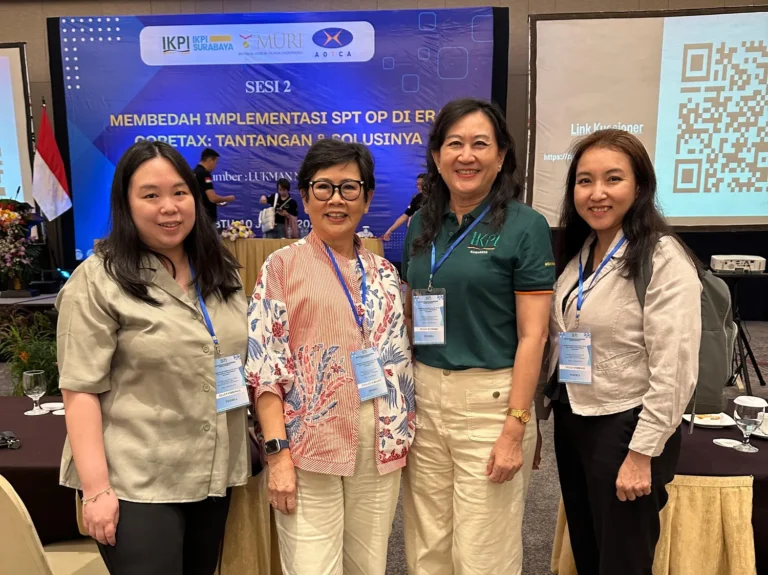- Phone: (031) 849 5566
- WA: +6282140060234
- Email: [email protected]
- Hours: Mon-Fri, 8am - 5pm
PMK 37/2025: Marketplace Officially Appointed as Withholder Article 22
The government has issued PMK 37/2025, which appoints marketplaces as the parties responsible for collecting Article 22 Income Tax on the sale of goods by domestic sellers. In PMK 37/2025, marketplaces are referred to as Electronic Trading System (PMSE) operators. This policy, effective from June 14, 2025, is an important step to ensure tax compliance in the e-commerce sector. As a complement, PER-15/PJ/2025 was issued to further regulate the criteria for appointing marketplaces as tax collectors, including official thresholds for transaction value and web traffic.

What is Marketplace Article 22 Income Tax?
Article 22 Income Tax in the context of marketplaces is an advance withholding income tax on sales transactions occurring via digital platforms. Under this new provision, marketplaces are no longer merely intermediaries but are also obliged to:
- Withhold Article 22 Income Tax when a transaction is completed
- Deposit the tax to the state treasury
- Report the withholding to the DGT through the Unification Tax Return
- Issue withholding receipts for the sellers or merchants
What Marketplaces Are Required to Withhold?
A marketplace or Electronic Trading System Operator (PMSE) will be appointed as a withholding agent if it meets the following criteria:
Uses an escrow account
An escrow account is a holding account owned by the marketplace that is used to receive payments from buyers. The funds are held temporarily and then distributed to the sellers once the transaction is completed.Meets one or both of the following thresholds within 12 months
Transaction value from services utilized in Indonesia exceeds IDR 600 million in 12 months or IDR 50 million in 1 month
Website traffic or users from Indonesia exceeds 12,000 visitors in 12 months or 1,000 visitors in 1 month
PER-15/PJ/2025 officially sets the transaction value and traffic thresholds for appointing a marketplace as a withholding agent for Income Tax Article 22 (PPh 22) and VAT. This regulation replaces the previous, more estimative approach outlined in PMK 60/2022.
Read Also: Marketplace to Withhold Taxes on Merchant Sales
Exemptions from Withholding by Marketplaces
According to Article 10 of PMK 37/2025, there are six transaction conditions exempted from withholding. Marketplaces do not withhold Article 22 Income Tax under these circumstances, even if generally appointed as withholding agents. The exemptions include:
- Sale of goods or services by individual taxpayers with annual turnover up to IDR 500 million. Merchants must submit a turnover statement to the marketplace.
- Provision of delivery or expedition services by individual taxpayers. For example, rideshare drivers partnering through apps.
- Sale of goods or services by merchants holding a tax exemption certificate for withholding or collection of income tax. This letter must be submitted according to Article 6(3).
- Sales of prepaid credit (pulsa) and starter packs.
- Sales of gold jewelry, gold bars, non-gold jewelry, gemstones, or similar items. The exemption applies if the transaction is carried out by manufacturers, merchants, or bullion traders.
- Transfer of rights to land and/or buildings or agreements binding the sale and purchase of land and buildings and any amendments thereof.
For all the above transactions, the tax obligations remain with the seller. They must carry out withholding, payment, and reporting in accordance with applicable tax regulations.
Policy Implementation and Impact
PMK 37/2025 is a milestone in tax governance in the digital commerce era. Marketplaces now play a strategic role in ensuring transaction transparency and merchant tax compliance. With proper systems and risk management readiness, this policy can be implemented effectively.
On July 15, 2025, the Indonesian E-Commerce Association (idEA) also announced that the association is proposing a one-year transition period to allow digital platforms to adapt. According to idEA, this policy does not actually create a new tax burden for merchants, as it only transfers the withholding obligation from the merchants to the marketplace. However, implementing the new requirements still presents various administrative and technical challenges in practice.





